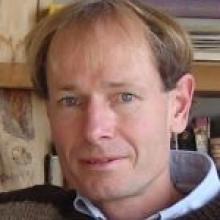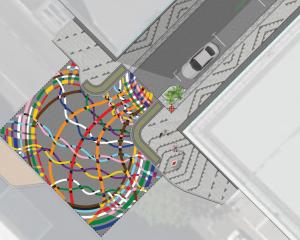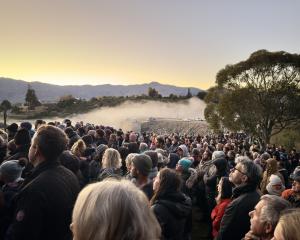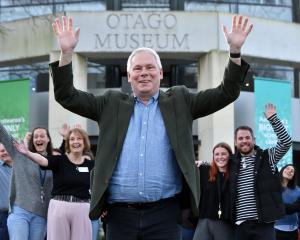
Police charged South Africa-based Prof Sean Davison in September, after he admitted to the Herald on Sunday he gave Patricia Davison (85), who was dying of cancer, a lethal dose of morphine before she died in October 2006.
He told the Otago Daily Times on Saturday, he expected to stay in Dunedin while the matter was being resolved, which could take another year, and that he wanted to offer his services to those trying to identify the bodies found in an up-to 2m pit in Kiribati.
He said his laboratory at the University of the Western Cape used mitochondrial DNA analysis to identify the remains of anti-apartheid activists found in mass graves and, if there was viable DNA, he was confident it could help identify what was discovered on Tarawa atoll.
"Whether or not the remains can be identified depends very much on the condition of the skeletal material, but I would hope that their having been buried might give us the material we'd need," Prof Davison said after he contacted the newspaper with his offer.
"Our work in South Africa shows how important it is to be able to offer families closure, or to help eliminate the unknown, and I would gladly offer our services for free."
His offer came as the New Zealand Defence Force (NZDF), Veteran's Affairs New Zealand, the Ministry of Foreign Affairs and Trade, and the Arts, Culture and Heritage Ministry marshalled resources to identify skeletal remains found by a New Zealand High commission-led dig on Tarawa atoll.
It was hoped the remains were of 22 people - including Otago telegraph workers Arthur Heenan, of Middlemarch, and Clifford Pearsall, of Lawrence and 15 other New Zealand Coastwatchers - beheaded by Japanese soldiers in 1942.
NZDF spokesman Commander Philip Bradshaw yesterday said Prof Davison's offer was "noted and appreciated" but that it was too early to to accept it.
Officials needed to examine the "circumstantial evidence" to "potentially" identify the group, including the location of the burial site and the manner of execution. Diplomats also needed to talk before an exhumation.
Medical records may also be used to help identify individual remains, leaving the prospect of DNA analysis some way off, Cmdr Bradshaw confirmed.
"We want to do everything right and not get people's hopes up. At this stage it's looking relatively positive, but we have been down this path before."
South Africa's Sunday Times newspaper reported a University of the Western Cape spokesman said Prof Davison's job was safe pending the outcome of the case against him.












